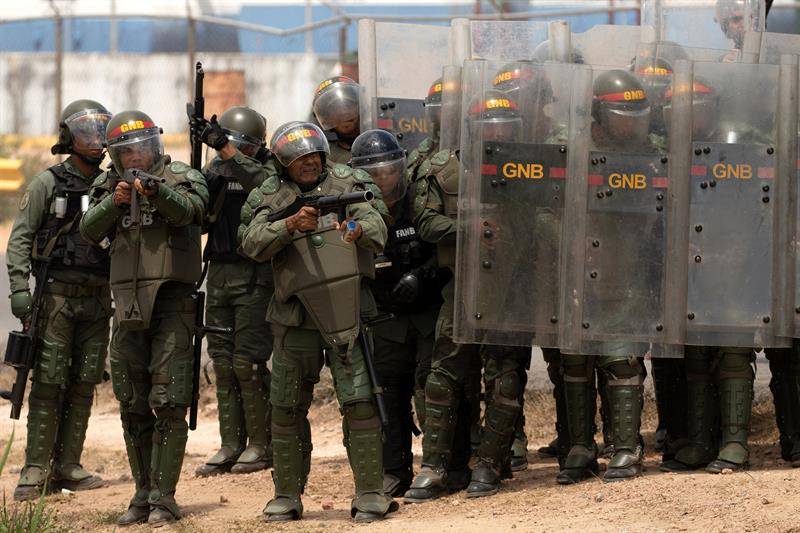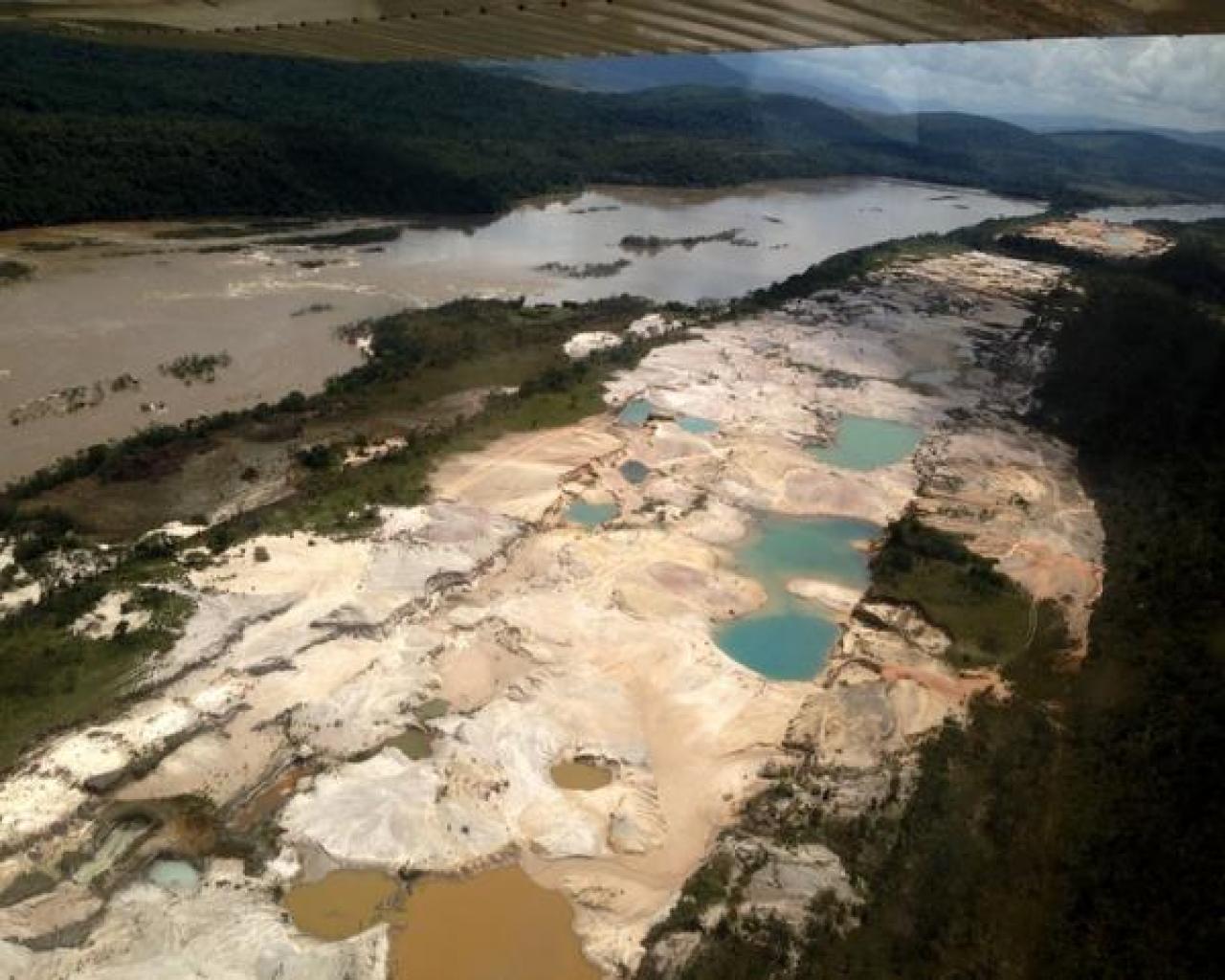Venezuela: inequality grows and abuses persist
Provea’s Annual Report reveals further deterioration of social rights and the persistence of human rights abuses
On May 11, the Venezuelan human rights organization Provea presented the 33rd edition of its Annual Report on the Situation of Human Rights in Venezuela for the period January-December 2021. This report compiles the main advances, setbacks, obstacles and threats to the realization of 14 human rights in our country.
The events that influenced the situation of human rights in Venezuela between January and December 2021 were grouped into four trends: 1) the consolidation of the crisis of democratic institutions, despite the holding of parliamentary elections, together with the erosion of the representativeness of polarized political forces; 2) Nicolas Maduro’s economic adjustment that is giving rise to historic inequality; 3) the actions of international organizations that forced the authorities to take steps to prevent the escalation of their protection and monitoring mechanisms, and 4) the threats and harassment against civil society and the attempts to further narrow civic space.
The deterioration of social rights persists
In 2021, 94.5% of the people consulted by the National Survey of Living Conditions (ENCOVI) were in a situation of poverty, with 76.6% of them in extreme poverty. In fact, the indicators for multidimensional poverty associated with food and nutritional security were affected by those associated with education and public services such as water and electricity.

By January 2022, the integral minimum wage in Venezuela stood at 10 bolivars (Bs) due to a new currency reconversion, equivalent to 2.18 US dollars per month, the lowest in Latin America.
In May, Pensions for older adults rose from 1.8 Bs to 7 Bs. In turn, remittances have become one of the engines of the Venezuelan economy and already represent at least 10% of the GDP, a figure that exceeds about five times the national income from oil sales.
The gaps between public and private employees widened. 58% of workers in the private sector are in extreme poverty, while the figure for the public sector reaches 75%.
Only 10% of employees in the private sector are not poor, and only 4% in the public sector. The mobility crisis further affected the occupations and job opportunities of the poor.
Hunger in Venezuela continues to rise amid an unfavorable forecast. The FAO has estimated an increase in the proportion of people who would suffer from hunger in Venezuela, from 33.2% in 2019-2021 to 38.4% in 2021-2023 and 61.7% in 2028-2030.
From a qualitative point of view, food insecurity, in its mild and moderate forms, affected a third of Venezuelans between 2019-2020 and 2021, while one in four households reported severe food insecurity, specifically related to experiences associated with hunger.
This was more accentuated in households in extreme poverty, which reduced spending on food by 13.3% in the same period.
Access to affordable food continues to be precarious due to the constant increase in prices and the low purchasing power of households.
The Venezuelan Society of Pediatrics revealed that 20% of children under 6 months of age suffer from malnutrition.
The reduction in the capacities of the public health system continued to intensify in 2021. After 22 months of the onset of the Covid-19 pandemic –and given the state of structural collapse in which it has been for more than six years–, the system showed an operational drop in services that reached up to 70% in 2019 and more than 80% between 2020 and 2021.
Provea registered a total of 71,186 complaints from people who saw their rights violated in public health centers in Venezuela, an increase of 340% compared to the previous year.
Regarding education, even though there are no official enrollment figures for basic and higher education, estimates by independent organizations show that the combination of remote learning and the effects of the Complex Humanitarian Emergency reduced school attendance. According to the National Youth Survey (ENJUVE), the rate of school enrollment in 2021 was the lowest since 2014; the National Survey of Educational Facilities found that 682,000 children have dropped out of elementary school since 2018 while the National Youth Survey showed that 821,000 people aged 15 to 19 and 880,000 of people aged 20 to 24 have dropped out of formal education in the last two years.
Women continue to be victims of inequality
In its 2021 Annual Report, Provea included a special chapter on the situation of human rights of Venezuelan women, which recorded abuses, obstacles and threats to the realization of their rights.
A third of Venezuelan women are outside the labor market, while 52% of those who have a job are in the informal market. 68% of the victims of trafficking networks in Venezuela are women, 1 in every 5 victims is a child or teenager, and 70% of them are girls.
Inequality in the labor market and the political arena continues to affect Venezuelan women. In the 2021 elections, only 496 women ran for one of the 355 mayoralties under contest, out of 2,730 candidates (18%), and only 60 of them were elected (18% of all mayors). Only 20 women were nominated for governor across the 23 states of the country, out of 183 candidates, and only 2 were elected (8.7%). 56.4% of women in the public administration are paid less than men for the same job.
Venezuela has one of the highest teenage pregnancy rates in the region, reaching 85.3%. According to AVESA, 58.6% of the women consulted cannot afford a gynecological medical consultation and treatment, while only 3 in 10 have received medical counseling and adequate formal education on Sexually Transmitted Infections, prevention methods and contraception.

Despite international scrutiny, abuses persist
In 2021, the international instances for the protection of Human Rights kept their eyes on Venezuela. The seriousness of the violations documented has forced them to strengthen the monitoring and investigation of the situation in the country.
In a historic decision, the prosecutor of the International Criminal Court (ICC), Mr. Karim Khan, announced on November 4, 2021, his decision to open an investigation into the alleged commission of crimes against humanity in Venezuela. This is the first decision of its kind issued for a country in the Americas and constituted, in Provea’s opinion, a major step on the victims’ path to Justice.
However, the abuses persisted in 2021.
The high lethality of the actions of the public force continued in 2021. Police and military bodies caused the death of 1,414 people across the country, once again as a result of a State policy of mass and systematic violations of the right to life, and categorically demonstrates that the actions of the State agents continue to contravene national and international legislation on the differentiated and progressive use of force by ignoring the obligation not to cause the arbitrary deprivation of life.
We are facing a situation of thousands of presumed extrajudicial executions, which may constitute crimes against humanity, under the jurisdiction of the International Criminal Court (ICC).
After a promising decline in 2020, the recent increase in the number of victims of torture is stirring serious concern.
Between January and December 2021, Provea registered a total of 241 victims of torture, an increase of 148.4% compared to 2020, and the second highest figure recorded in the last 33 years.
In addition to this, the increase in the forms of abuse based on humiliation and the physical and psychological reduction of the victims through sexual aggression is a matter of special concern.
In 60.9% of the complaints of torture collected in this Annual Report, the victims stated having suffered some type of sexual abuse, which in several cases included rape.
The Bureau for Scientific, Criminal and Forensic Investigations (CICPC) was identified as responsible in 155 complaints of torture, with the same number of victims, accounting for 64.3% of the complaints registered in 2021.
Finally, the actions taken in the field of Justice to evade the action of the International Criminal Court proved unsuccessful and confirmed that the Venezuelan State lacks the genuine will to investigate and punish those responsible for the commission of crimes under the principles of the Rome Statute.
You can download the Annual Report by Chapters (In Spanish) HERE.
Translated by Jose Rafael Medina




